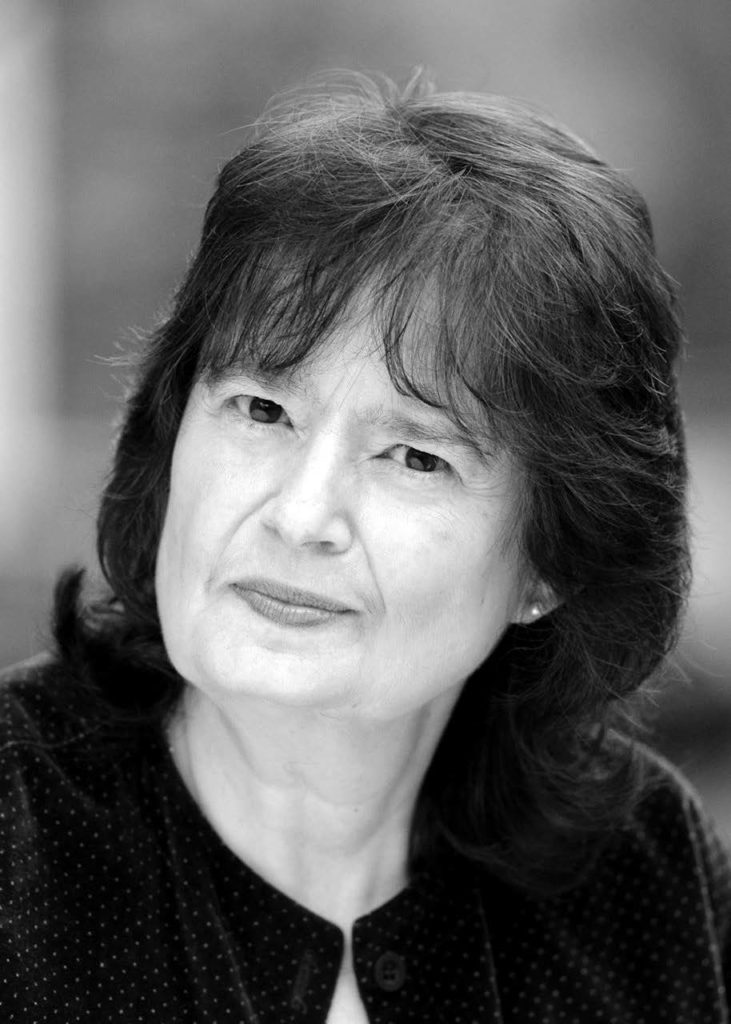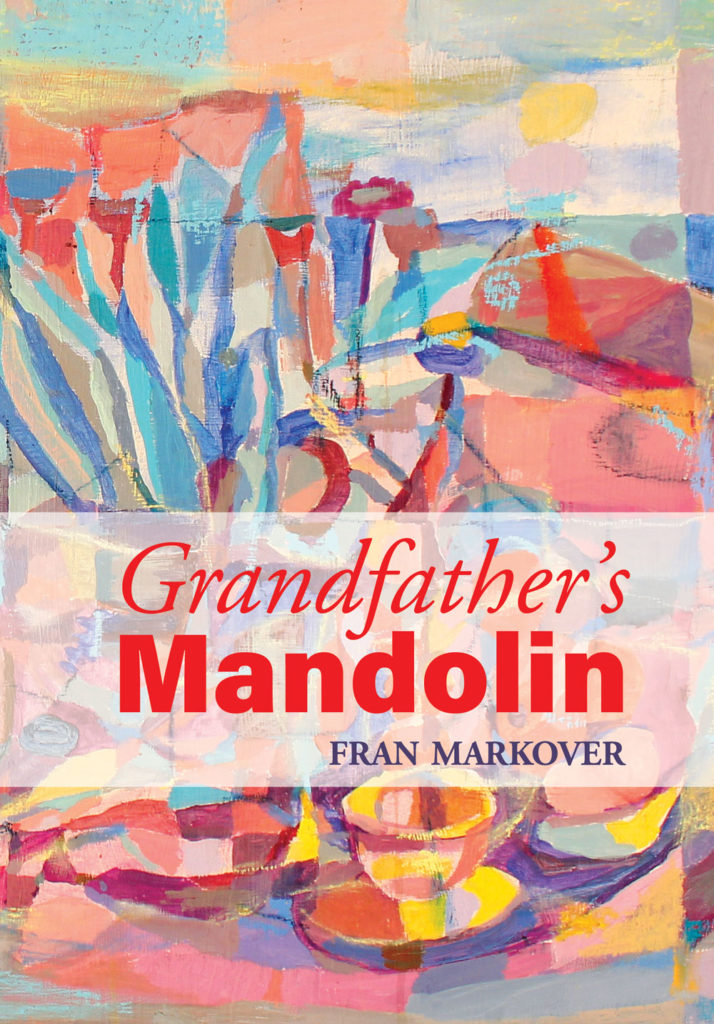

Ancestors traveling their paths to the future, with excerpts from Grandfather’s Mandolin by Fran Markover.
7 minutes
TRANSCRIPT
During December, we’ll be featuring work from books that Passager published over the past year. One of those was Fran Markover’s book Grandfather’s Mandolin.
Poet Mary Gilliland said that Fran “creates a book of grieving for and rejoicing in forebears and family.” She said, “These poems braid languages and generations; they sing their scenes and stories with ingenious formats, gleaming images, and full-throated delight.”
Here’s Fran Markover’s poem “Dear Grandmother Zipporah.”
I want to sail back to 1917, visit the motherland
where you learned: bring extra sweaters, chocolate,
crackers, just in case. Sail back to 1920, enter the
rowboat that carried you and young Moishe, grand-
father-to-be. To witness another vessel, miles up-
stream, the neighbors who didn’t make it. To return,
toss stones of remembrance into the river, recite
Kaddish for names drowned. I want to be caged in the
Bucharest jail and fathom the fright of bribing
a soldier, to escape then haggle over a lace dress,
wedding ring that’ll someday grace a daughter’s finger.
I’d like to rescue Grandfather’s mandolin so that I could
hear him strum Yiddish folk tunes, the instrument re-
strung so that his grandson could wail rock songs for
a high school band. I’d like to re-stamp immigration
papers that stated your name as Pauline, not Zipporah.
Time-travel to first sightings of the Mother of Exiles
lifting her torch, lighting your tired, your poor, as you
struggled with a new language, stepped onto the dock,
dirty and pregnant with my favorite uncle. To hold sweat-
pearled hands as we walk, freeing long deep breaths.
“Dear Grandmother Zipporah” from Fran Markover’s book Grandfather’s Mandolin.
Colgate University Professor Emerita Barbara Regenspan said Fran’s poems “feel spilled from a pre-written scroll of memories so lush with love of language that the people in them seem to convey what it means to be touched by the divine.”
Here’s Fran’s poem “How Grandfather Plays the Mandolin.”
As if each note is code.
Each discord — harmonic chord.
As if military brass tempers
the mettle he’ll need to become
journeyman, riveter of bridges,
elevators, buildings that scrape
the sky. He plays as if he feels
in his bones the architecture
of words he could die for — justice,
peace, equality. As if the Lady
who’ll welcome him into a city
will offer a torch song — give me
your tired, your poor, your
huddled masses as if she really
means it. As if he can summon
Moses, Isaiah, Jeremiah, carry
their truths to a new land. As if
military comrades display arms
to farm, pray in temple, light
candles. He plays and his fingers
open slowly, as if angels on the
battlefield become doting parents
who hover over him, whispering
live, whispering Sh’ma, Yisrael . . .
He plays as if he can someday
strum his mandolin in his own
home, as if Mother and brothers
are alive, his tribe not scattered,
no need to raise any fist except
in dance.
“How Grandfather Plays the Mandolin” by Fran Markover. One more, that she wrote for her nephew: “Why I’m Giving You Moishe’s Mandolin.”
Because it’s a voice in the dark
that leads you to an opening called college
Because the mandolin contains a small forest —
black cherry pits, twigs, dried leaves
All the squirrel must have needed
to survive the instrument’s bowl
in Moishe’s dusty closet
Because squirrels, chipmunks, crows
would maraud his May fields
Remind him of sunflowers
Of caches of fruit. Of long, hoary winters
Of what he squirreled away, broken —
screwdrivers, bicycles, chairs
Whatever he could preserve —
pickles, melodies, the forbidden sh’ma
an escape, a root, a tremolo
that sustained him across the river Dnestr
The mandolin wrapped in wool
so that almost a century later
I can say good-bye to the frets, the strings
Polish the rosewood
The face riddled with rodent holes
Ready for a young hand like yours
to brush against the grain
Because the way you play guitar
is with a firm stroke and a scowl
Your music raw electric
The hard-rock of guns, gangs, city grunge
The mandolin fragile
Stones seeds dirt rattling inside
The instrument wanting to be re-strung,
plucked, swung to the air
Because your great-grandfather
would have raised a fist to the songs
that rap and gnaw at your belly
“Why I’m Giving You Moishe’s Mandolin.” Fran Markover, from her book Grandfather’s Mandolin.
To buy Grandfather’s Mandolin, subscribe to or learn more about Passager and its commitment to writers over 50, go to passagerbooks.com.
Before we end this episode, this from Passager’s managing editor Christine Drawl:
“Passager is a small nonprofit press with a big mission. As the youngest Passager staff member, I am continually inspired by writers decades older than me who are putting their work into print for the first time. If you think older writers are only relevant to older readers, I’m here to say that these voices have given me a tremendous amount of hope for my own future. I used to fear that creativity and discovery were things we left behind as children, but these remarkable people have showed me that these are things we always carry with us, and it’s never too late to reignite them. You can help inspire others with a donation to Passager in any amount. Go to passagerbooks.com, and click on “donate” at the top of the page.”
Passager’s managing editor Christine Drawl.
You can download Burning Bright from Spotify, Apple and Google Podcasts, and various other podcast apps.
For Kendra, Mary, Christine, Rosanne, and the rest of the Passager staff, I’m Jon Shorr.






